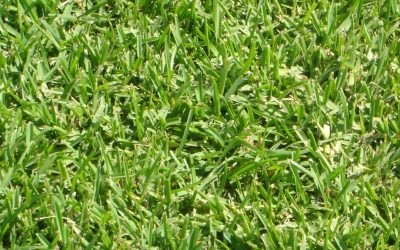What Are Lawn Grub Worms And How Do I Get Rid Of Them?
How Do I Get Rid Of Lawn Grubs?
Lawn grub worms are found during warmer months and are often more active in the summer. They can also be called grubs, lawn grubs, white grubs, and turf grubs.
As lawn grubs feed on lawn roots, they can cause significant damage, especially when there is a large infestation.
Did you know, lawn grubs aren’t actually grubs, or worms at all; they are the larval life-stage of different species of scarab beetles?
There are many different types of grub worms, these can grow up to be Argentinian scarab beetles, African black beetles, Japanese beetles or they can turn into many other species in the scarab beetle family.
It’s very difficult to tell what species of scarab beetle the larval will grow up to be. Luckily, knowing this isn’t necessary to treat the infestation.
Lawn grubs hatch from eggs that have been laid by scarab beetles just under the surface of your lawn.
Once they have hatched, they feast on lawn roots and turn into pupae and re-emerge as scarab beetles.
These beetles then feed on other foliage and relay eggs under the lawn, restarting the cycle.
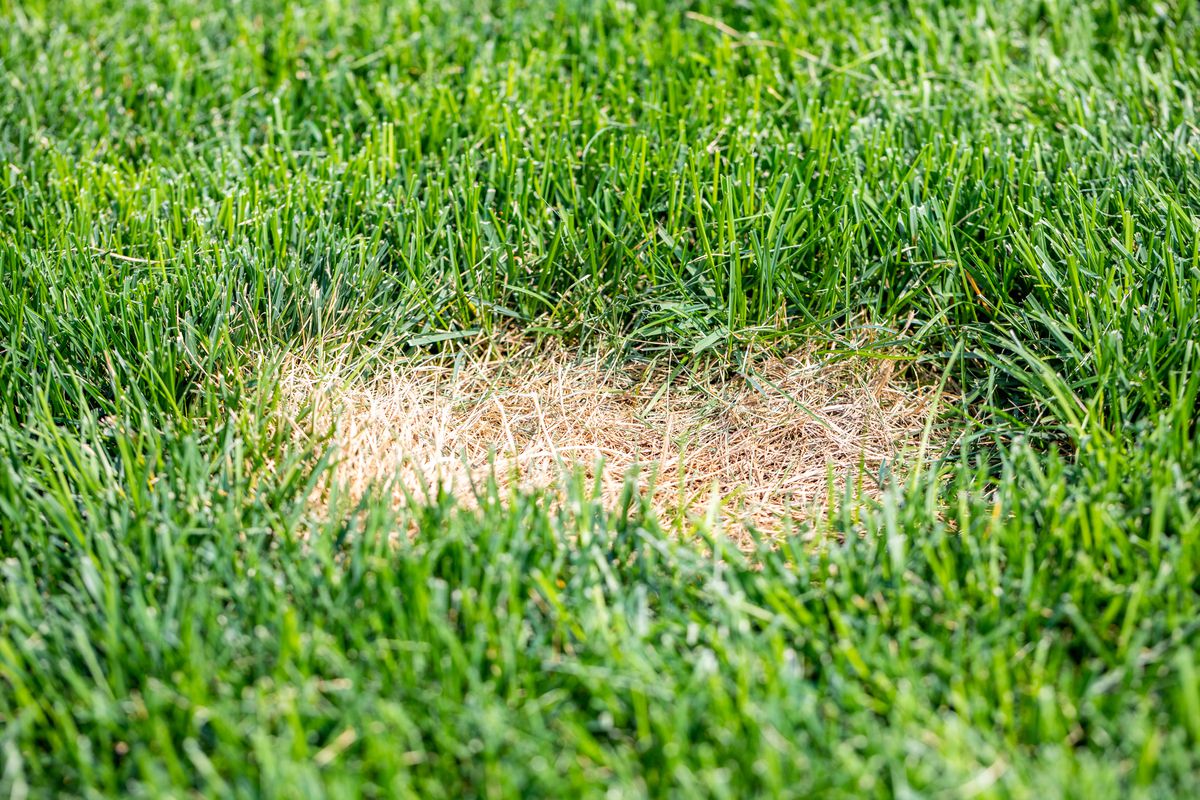
How To Know If I’ve Got Lawn Grubs?
It is important to know the signs of having lawn grubs so that you can identify the problem early and remove these pests sooner rather than later.
Addressing your lawn grub issue promptly will limit the amount of damage they can inflict and the sooner your lawn can look green and lush again.
These pests can be identified by their white, C-shaped bodies, they have an orange coloured head with three legs on either side of the head.
What Are The Signs?
- The easiest way to tell if you have got lawn grubs is by looking for irregular brown patches throughout the lawn.
- As lawn grubs dine on the roots of a lawn, the grass will also be easy to pull away from the ground and won’t have any roots attached.
- You will find an increase in activity from other wildlife species. Birds and rodents feed on lawn grub worms and will have higher interest than normal in your lawn.
- A special increase in beetles flying around the lawn, females will be scouting the area for a place to lay their eggs.
Why Do I Have Lawn Grubs?
There is no specific cause of a lawn grub worm infestation, other than the reason that a species of the scarab beetle has laid its eggs in your lawn.
Unfortunately, beetles are more attracted to healthier lawns, as these are more fertile and filled with nutrients.
However, it is a good idea to keep an eye on neighbouring lawns. If a neighbour has a grub problem, it’s likely the beetles will fly over to your lawn too.
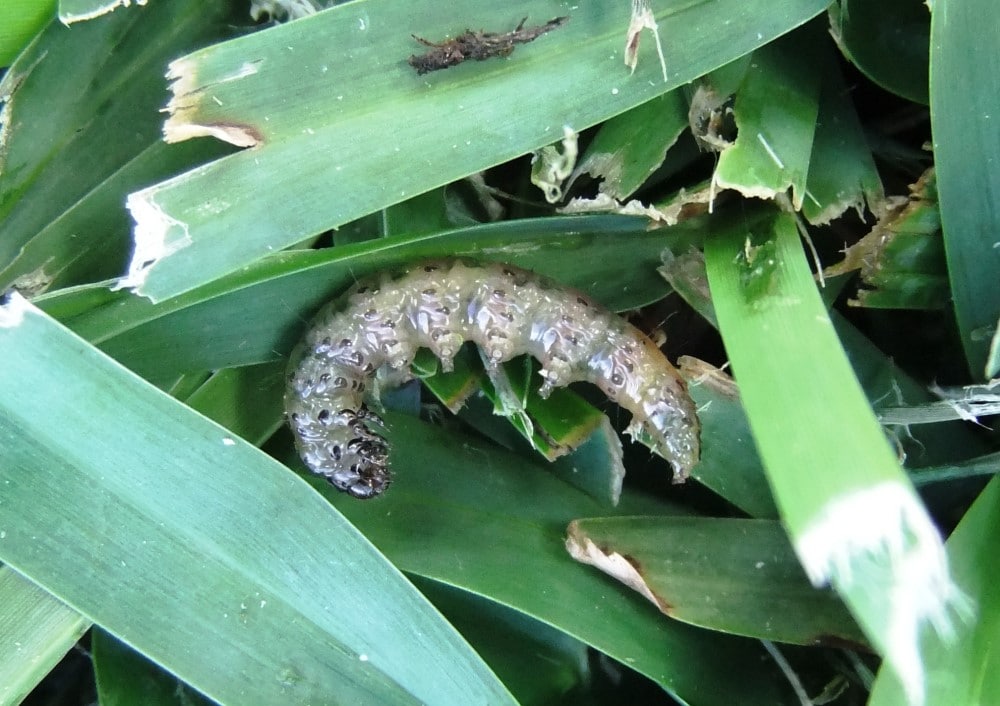
Do I Need Treatment?
Even if you have lawn grubs, you may not need treatment. A healthy lawn can withstand some grubs without any need for lawn treatment.
The easiest way to assess if you need lawn treatment for your grub infestation is to check how many grubs are currently within a square foot of your grass.
Under 5 grub worms isn’t a large enough infestation to worry about and shouldn’t need treatment.
Anywhere between 6-9 grubs in a healthy lawn should be fine without treatment.
If you have 6-9 grub worms in an already stressed lawn you will likely require treatment.
When there are over 10 grub worms, your lawn will become severely damaged and need treatment.
Whilst you’ve pulled your grass up and are looking for grubs, yank out any that you see. Remember to also water your grass once you’ve replaced it.
Lawn Grub Worm Damage
The worst damage caused by lawn grub worms isn’t actually caused by the worms themselves, but instead by the larger animals that feed on these pests.
Brown Patches
The main damage caused by lawn grubs is them feeding on grassroots and turning patches of the lawn brown.
These patches vary in size depending on the amount of lawn grub worms and sporadic in placement.
The damage to these areas can sometimes be so great that you can easily pull the grass up like a carpet.
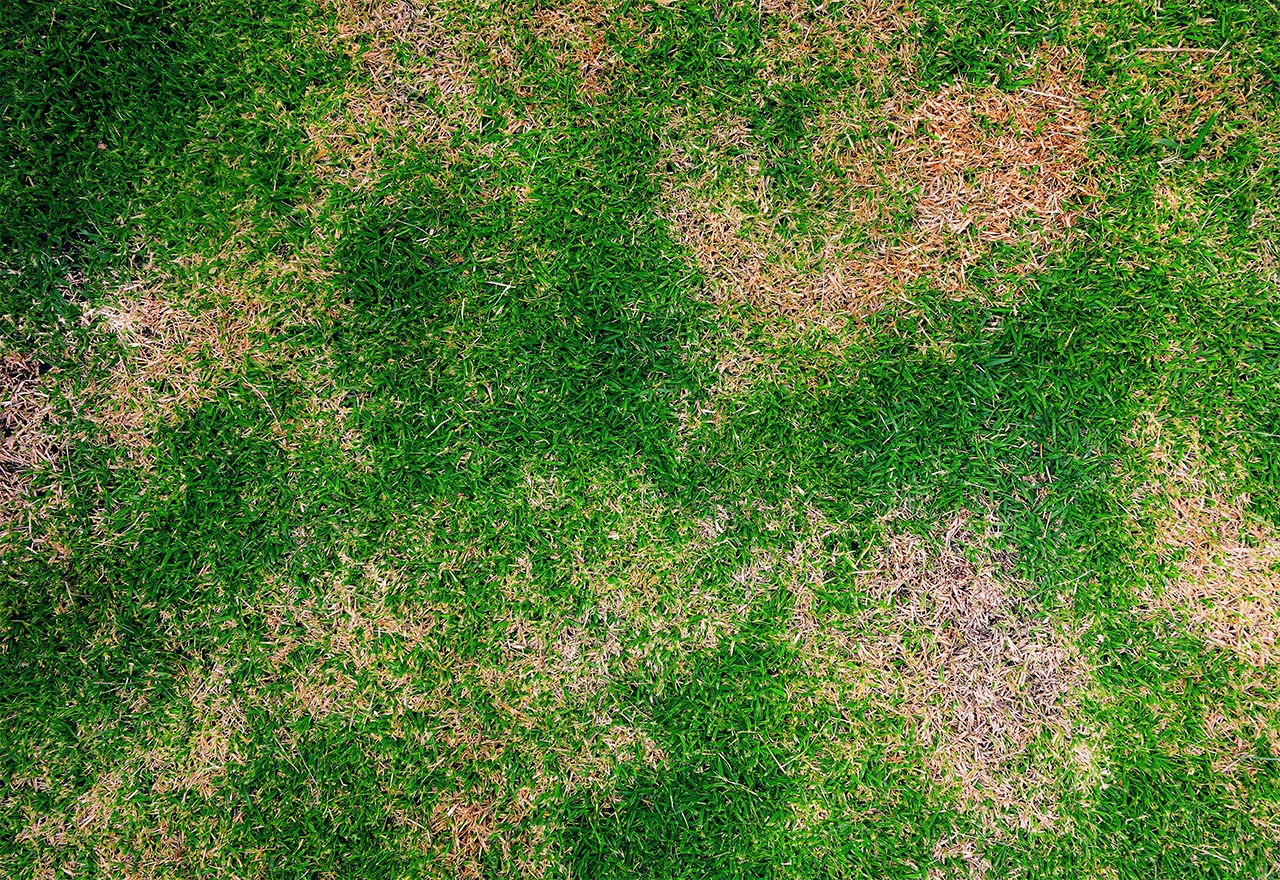
Turned Up Grass
Larger animals that feed on these pests such as birds, foxes, moles and other vermin, can often turn up the grass to get to the worms.
This is the most instantaneous and destructive damage.
How To Treat Lawn Grubs?
Grubs hatch in the late summer, making this the best time to treat your yard.
Newly hatched grubs can often be found closer to the surface, as they will be feeding on the grassroots.
This means they will more likely to come into contact with the pesticides. Whilst the grub worms are young, they are also weaker and more susceptible to treatments.
When it comes to lawn grub treatments, there are two options: an artificial spray or a more natural approach.
Spray Treatments
There are plenty of insecticides that combat lawn grubs.
Fast-acting sprays are available to combat an existing infestation and guard sprays help prevent grubs from laying their eggs, killing any hatchlings before an infestation can occur.
Insecticides also come in sand granulated form, which you distribute over the lawn, the sand then sinks into the grass and kills grubs upon impact.
Always read the instructions on the spray bottle and ensure the product is safe to use on your lawn type.
Recommended Products
- Amgrow Pest Control
- Lawn Lovers Grub Guard
- Acelepryn GR
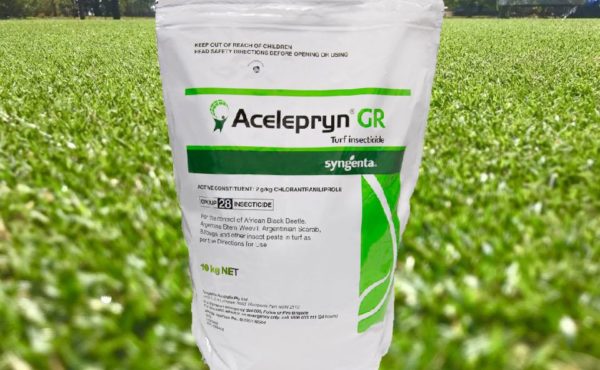
Natural Treatments
One of the natural methods of clearing your lawn grub worm infestation is to introduce nematodes to your lawn.
The Heterorhabitis bacteriophora strain of nematodes combat grubs when they are young by feeding on them before they can cause too much disruption.
Other natural remedies for getting rid of grub worms include neem oil and milky spore, these are put on the lawn and when the grubs eat them, they die before becoming overcoming your lawn and causing an infestation.

read more!
recent posts
Which Zoysia Lawn is Right For Your Home?
Compare Zoysia Australis and Empire Zoysia to find the perfect turf for your lawn. Discover key differences and make an informed choice! Read more.
Sir Walter Buffalo vs TifTuf: Which One is Better
Compare Sir Walter Buffalo and TifTuf turf for Australian lawns. Discover key differences in shade tolerance, drought resistance, wear, maintenance & which is best for your yard.
Poolside Turf: Choosing and Maintaining Grass Around Pools
There’s nothing quite like stepping out of a swimming pool onto soft, lush grass. But when it comes to finding the best grass for around a pool, not all lawns are created equal. Chlorine pools, heavy foot traffic, and the unforgiving Australian sun can take a toll on...
Keeping Your Lawn Green and Healthy During the Summer Heat
Discover the best grass options for your lawn with our complete guide. Make informed choices for a lush, healthy yard. Read more to find your ideal grass!


